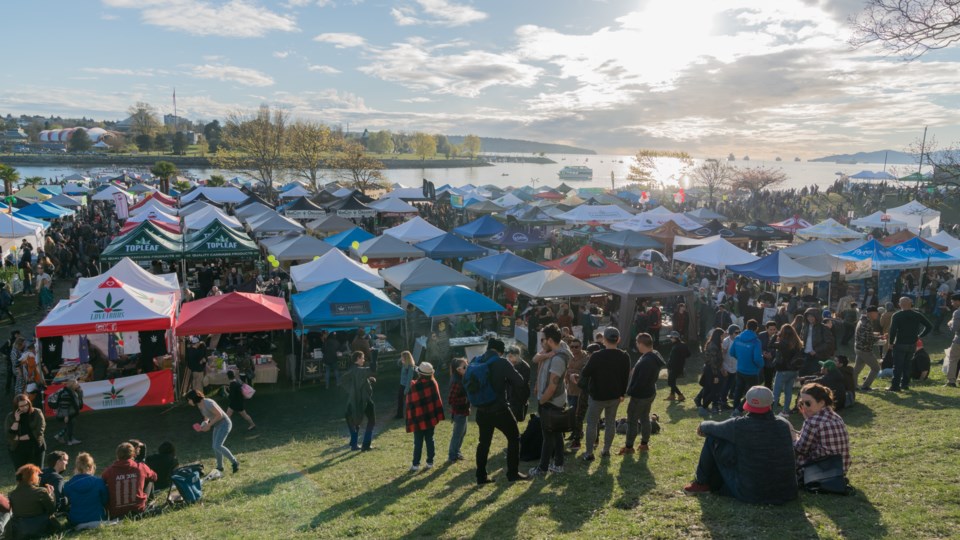The celebration of 4/20 has been going on for as long as I can remember. As I high school kid, I was confused by why some of my classmates were coming back with dazed looks and red eyes, and others weren’t coming back to class at all.
The protest has been making a case for the legalization of marijuana since the late ‘70s. The movement reportedly started in San Rafael, California. At the time, 4/20 was police code for “Marijuana Smoking in Progress.”
We have of course, come a long way since then.
For the first time this year, on the twentieth day of April, recreational marijuana is legal in Canada. This makes the annual 4/20 celebration more of a party than a protest. This year, organizers secured band Cypress Hill to play at an event where they still refuse to pay the policing costs.
Any other public event – whether music festival or car free day – has to go through the proper permitting process and pay any associated costs to the city, including policing and cleanup. Public protests are exempt from these rules.
In 2002, the Vancouver Police Department changed its large crowd response, including new tactics, restructuring, and coordination of departmental critical resources. As a result of these changes, the Public Order Group was formed and now includes resources such as horses, canine, bicycles, and negotiators working together with the Public Safety Unit.
All members of the Public Order Group receive specialized training in crowd control and management. The Public Order Group routinely polices all large-scale public gatherings, including 4/20. This of course comes at significant cost.
A leaked City of Vancouver memo shows that the costs of 4/20 in 2017 and 2018 to taxpayers was more than half a million dollars. The majority went to policing ($127,245 in 2017, and $139,699 in 2018). It’s one thing when the event is a protest, but now that marijuana is legal, taxpayers should not be footing the bill.
After last year’s event, Sunset Beach was closed to the public for weeks to allow for cleanup and for the grass to re-grow in places where it had been trampled. Members of the Park Board were livid. Any other music festival or public celebration would be held responsible, but because 4/20 has passed as a protest for so long it’s managed to skirt the rules.
As this year’s event approaches, well-known marijuana activist Dana Larsen has been making his case why 4/20 should maintain its protest status:
“A protest is an act of civil disobedience designed to challenge existing rules, draw public attention to an issue, and create social and political change. In all those regards, 4/20 is a very successful protest,” he tweeted.
Larsen also went on to talk about the impact prohibition had on the LGBTQ community, and finally argued why 4/20 should qualify as a civic parade and thus be eligible to receive subsidies and support.
It’s very clear what’s happening here: 4/20 organizers want to make as much money as possible off the event. It makes sense.
But for a group that has been advocating for so long that the rules be changed, now that they have, it’s time they start playing by them.
Ada Slivinski is the Founder & Principal of Jam PR, a boutique agency focused on helping small businesses get big exposure. You can reach her at [email protected]



